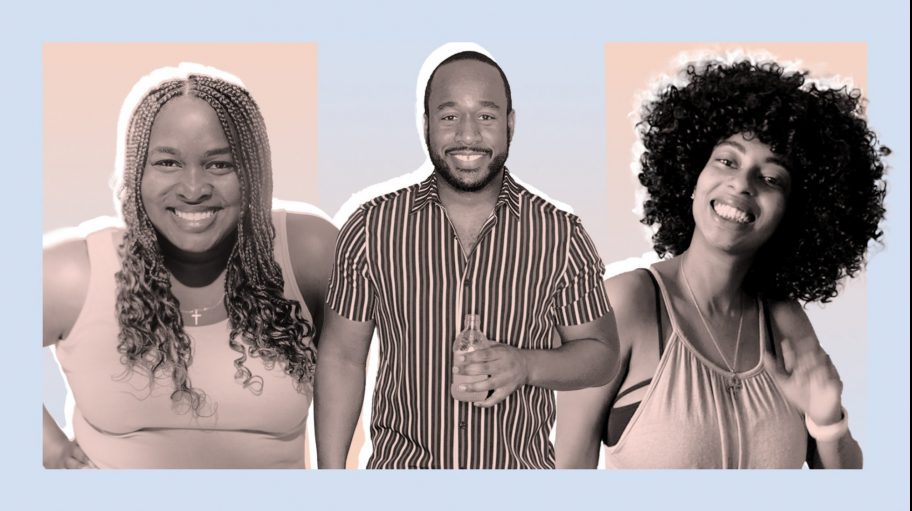“Gratitude for working and feeling needed helps my mental health.”
Nothing could have prepared us for 2020. The COVID-19 pandemic brought about a myriad of challenges and changes that, to say the least, have required some major life adjustments. While many people had to shelter-in-place at some point this year with the ability to work remotely, countless others have put themselves in harm’s way working in essential roles.
Black workers, especially, are overrepresented in essential jobs. Even though they represent about 12 percent of the total U.S. workforce, Black people hold roughly 14 percent of grocery store jobs, 26 percent of public transit positions, 18 percent of postal service jobs, 17.5 percent of health-care positions, and 19 percent of roles in child-care and social services, according to a 2020 report from the Economic Policy Institute.
Considering many of these jobs require you to come face-to-face with the virus, these numbers partially explain why more Black Americans are dying from COVID-19 compared to white people. While Black people make up 12.5 percent of the U.S. population, they account for more than 22 percent of COVID deaths, according to the Economic Policy Institute’s report. For comparison, the report showed that white people make up about 60 percent of the U.S. population and account for roughly 52 percent of COVID-19 deaths. Of course, though, these numbers can also be explained by long-standing systemic health and social inequities that have now put many Black people at an increased risk of not only contracting COVID but also experiencing severe complications from the virus, according to the Centers for Disease Control and Prevention (CDC).
There’s also the issue of job security: A 2020 Pew Research Center survey of 13,200 U.S. adults found that, overall, about 42 percent of people say they or someone in their home lost a job or took a pay cut because of COVID-19. But Black people (as well as other minority groups) are disproportionately affected by these issues too: Among Black adults in the survey, 43 percent said they or someone in their home was laid off or took a pay cut due to COVID, compared to 38 percent of white adults.
All of this to say that Black essential workers carry a huge burden, both personally and professionally. It’s a lot to handle, but they still show up every single day not just for themselves, but for all of us. Here’s how Black essential workers are taking care of themselves amid the challenges of the COVID-19 pandemic.
Keya A., LPN, 39, Runnemede, NJ
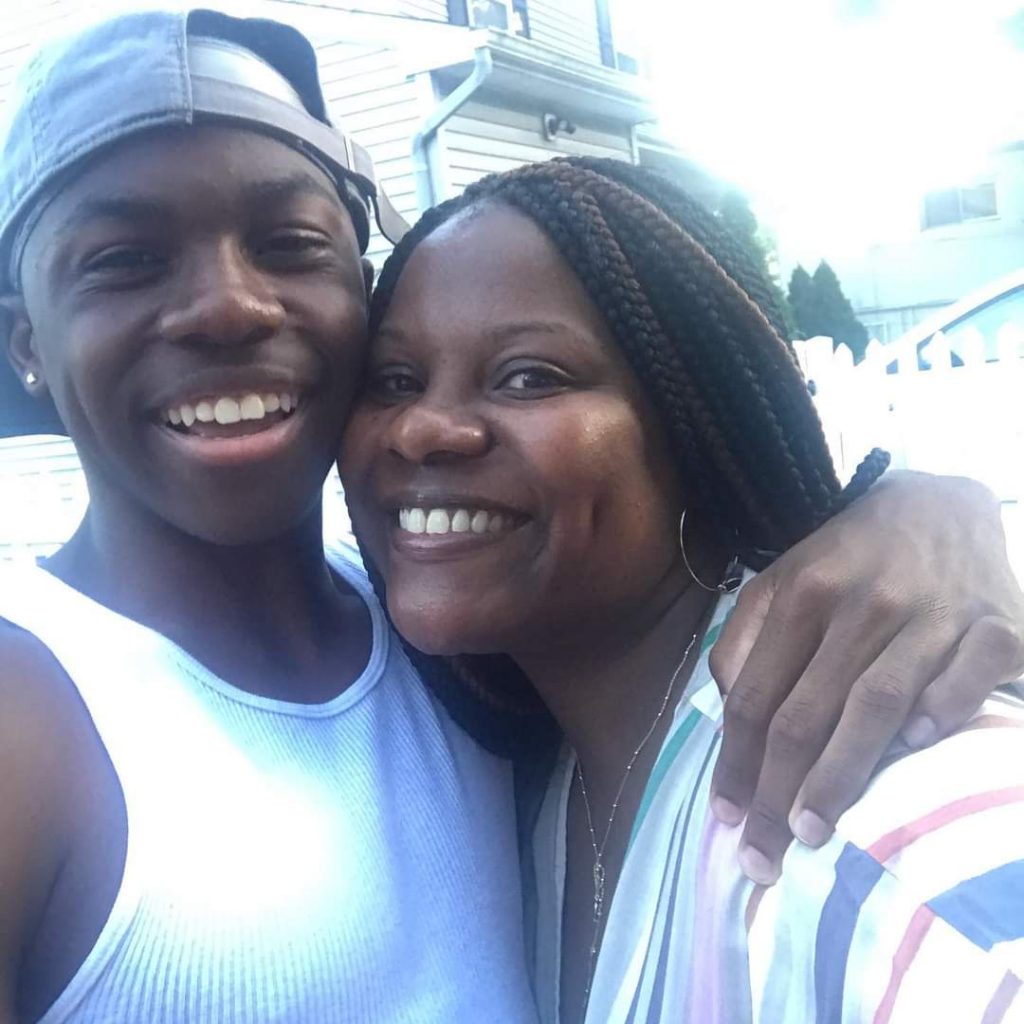
Credit: Keya A.
“Working in the medical field is stressful in itself. I already have a lot of anxiety, but somehow it’s worse this year. Most of the anxiety [comes from] wanting to keep my family safe, including my mother and mother-in-law, and my toddler and teenage sons. New Jersey lost many seniors in facilities to COVID, and I’ve been front and center for it. It’s a lonely way to go, and I don’t want to see anyone I love go through it. (Related: How to Cope with COVID-19 Stress If You’re an Essential Worker)
I was also diagnosed with prediabetes this year, which I know had to be related to the stress. I’ve been managing my anxiety by working out. I work out sometimes seven days a week, but it’s pretty effective in helping me practice self-care. I feel like that will be the key to reversing my diagnosis and managing the uncertainty of the pandemic.”
Jasmine J., Preschool Teacher, 30, Nashville, TN
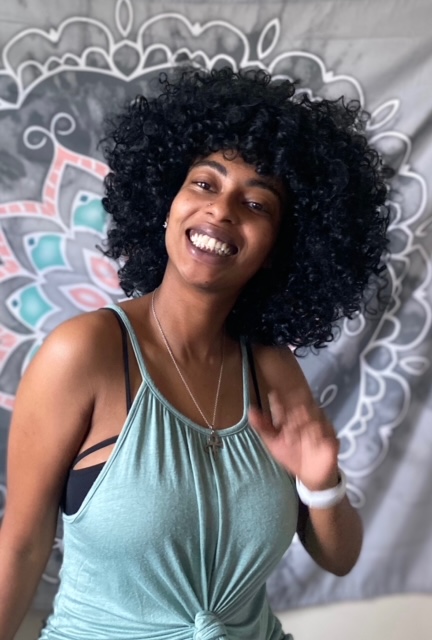
Credit: Jasmine J
“In 2020, I went from being an overworked assistant director at a preschool to changing schools and going back to teaching once the pandemic hit. It was one of the hardest decisions to make, but after seeing how dangerous things could have potentially gotten under [my old] school’s leadership team, I knew I needed a change. Being back in the classroom was one of the greatest decisions I could’ve made. Don’t get me wrong, the constant policy adjustments and CDC updates made things very hectic in the beginning. But being able to learn more about myself and feeling the loving energy from those children made everything worth it. (Related: What It’s Really Like to Be an Essential Worker In the U.S. During the Coronavirus Pandemic)
I helped an old friend from a previous school with the opportunity to work with me in a new classroom, and it has strengthened our bond in more ways than one. The year has been unpredictable, but it has been such a blessing to be able to have someone to vent or cry to. We taught a class of 11 two-year-olds that needed to be potty-trained and taught how to wear face masks. It was taxing, but there have been highlights, including our students singing happy birthday to us on Zoom for our 30th birthdays. As they sang to us, I thought about how grateful I was to be in that moment even though things weren’t the way I would have hoped for a milestone birthday. (Related: How to Practice Gratitude for the Most Benefit)
Self-care, for me, has been learning the art of staying still and listening to my body, paying attention to every change, both internally and externally. My friend was a part of that self-care. And most of all, I’ve learned the beauty of the gift of life.”
Self-care, for me, has been learning the art of staying still and listening to my body, paying attention to every change, both internally and externally.
Briana H., 29, Physical Therapy Assistant, Claymont, DE
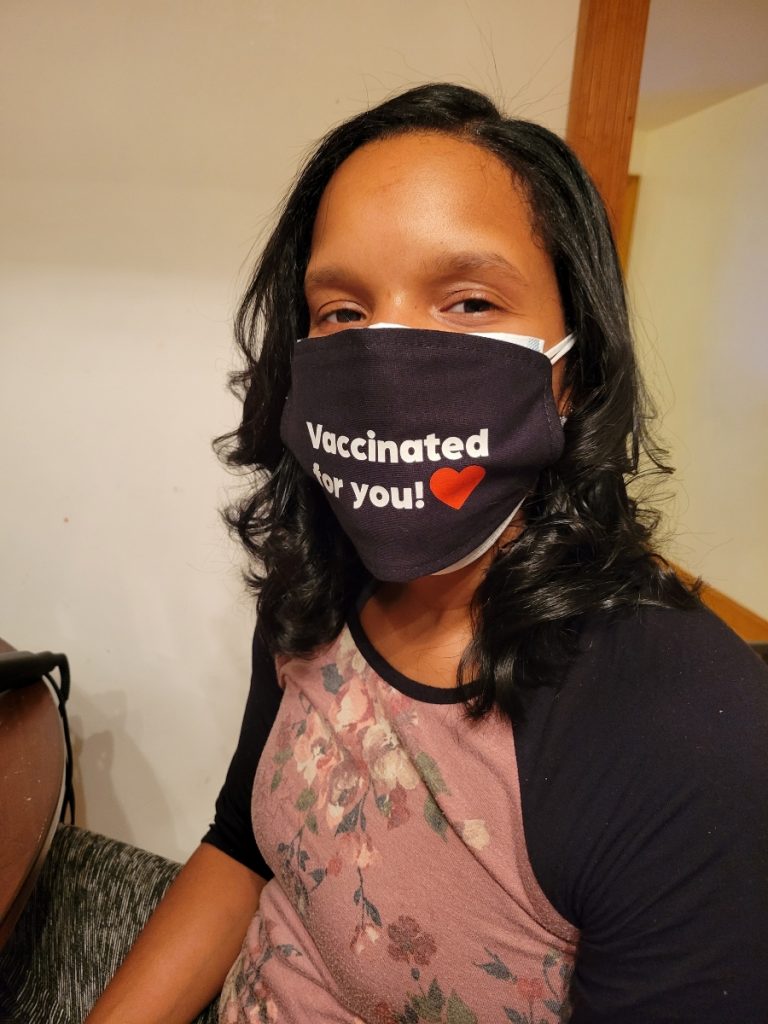
Credit: Briana H.
“The atmosphere [at work] is a little more depressing. Being in a rehab facility, the patients are not allowed to have their families around them. It’s physically and mentally exhausting, and we have the added burden of wearing PPE, which makes it difficult to physically work with a patient. For instance, some patients are supposed to get constant exercise, but we’re wearing plastic over the top of our clothes, then a cap, and an N95 face mask, which makes it tough to breathe. Within 15 minutes, I’m dripping with sweat. While I’ve been compliant and have been able to avoid COVID, we did have an outbreak due to someone else taking risks, which adds to the strain. (Related: Medical Workers Are Speaking Out About Skin Breakdown Caused By Tight-Fitting Face Masks)
What’s been saving us is talking. There is more camaraderie during lunchtime than at any other time. I need social interaction, and that helps. I’m not sure how I’d fare without that, but I do get to go home to my husband and three sons, and venting after work has been really important for me. I also know that I could have lost my job, so gratitude for working and feeling needed helps my mental health.”
Tiffany S., 30, Behavioral Therapist, Pennsauken, NJ
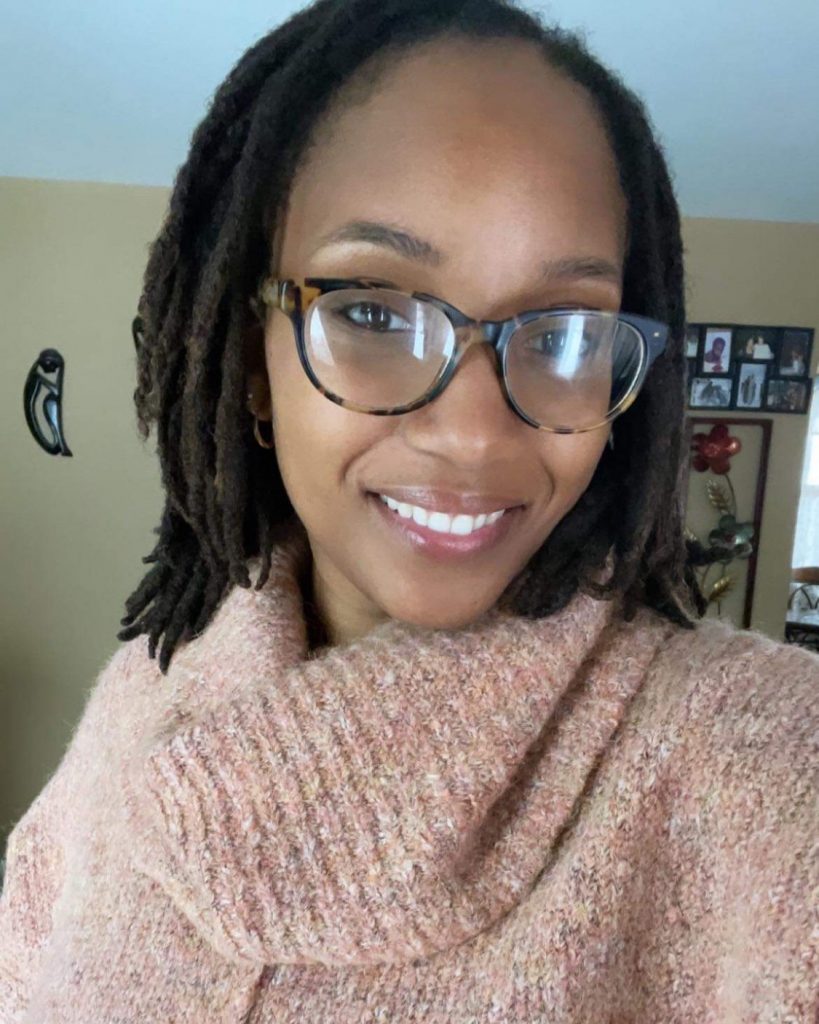
Credit: Tiffany S.
“I work in a group home setting, and I also work with students with developmental disabilities such as autism. There is no social distancing in what I do; the type of support I provide requires me to be hands-on for most of my time. Considering COVID, it can get overwhelming at times. The behavioral challenges are greater simply because our patients don’t have access to the same activities as they did before, and they are stuck in the house a lot of the time.
Before the pandemic, I was going to the gym pretty consistently, so when it shut down, I got right into at-home and outdoor workouts. I moved my body as much as possible, whether it was a yoga practice, a basement workout, or walking the dog. Once I got more and more creative with exercise with gyms being closed, it started to feel more therapeutic and less like a chore. In addition to working out, I spend lots of time in the kitchen. Cooking for myself is a huge aspect of my self-care.”Gratitude for working and feeling needed helps my mental health.
Muriel C., Pharmacy Technician, 33, Wichita, KS

Credit: Muriel C.
“I had anxiety prior to COVID, but it has definitely gotten a lot worse. I work in a hospital setting, so there are risks associated with my job. However, the news has been a major factor in me being so stressed out. The key to me keeping sane has been not watching the news and cutting back on social media usage. I also started keeping a journal.” (ICYDK, journaling can have tons of benefits for your mental health.)
Jerry C., 32, Corrections Officer, Mt. Ephraim, NJ
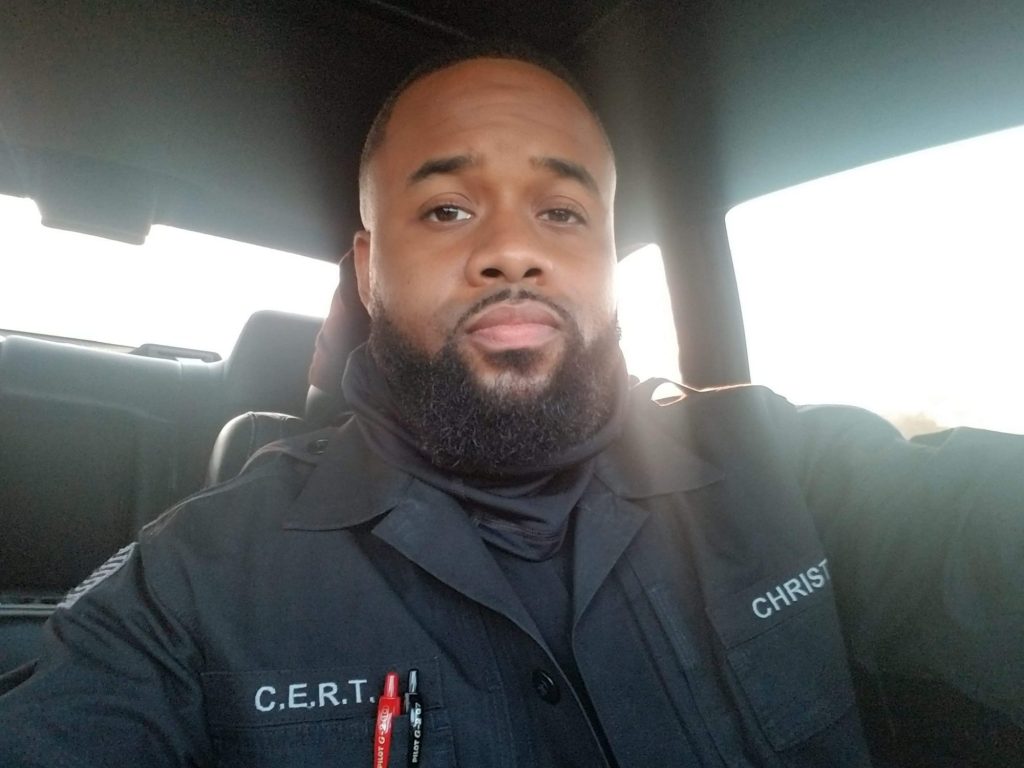
Credit: Jerry C.
“To put it mildly, work has been stressful, and in different ways. For one, it’s crowded, and jails have been COVID superspreaders. It’s tough to try to socially distance in a jail setting. There’s only so much you can do as far as moving people around who are quarantined and not. We also had staffing issues and shortages.
Self-care is mandatory these days. To relieve my stress, I found exercise to keep me in check. Also, just sitting at home and trying to catch up on sleep does wonders after a long day.” (Related: How to Sleep Better When Stress Is Ruining Your Zzz’s)
Oludara A., 32, Psychiatric Social Worker, Los Angeles, CA
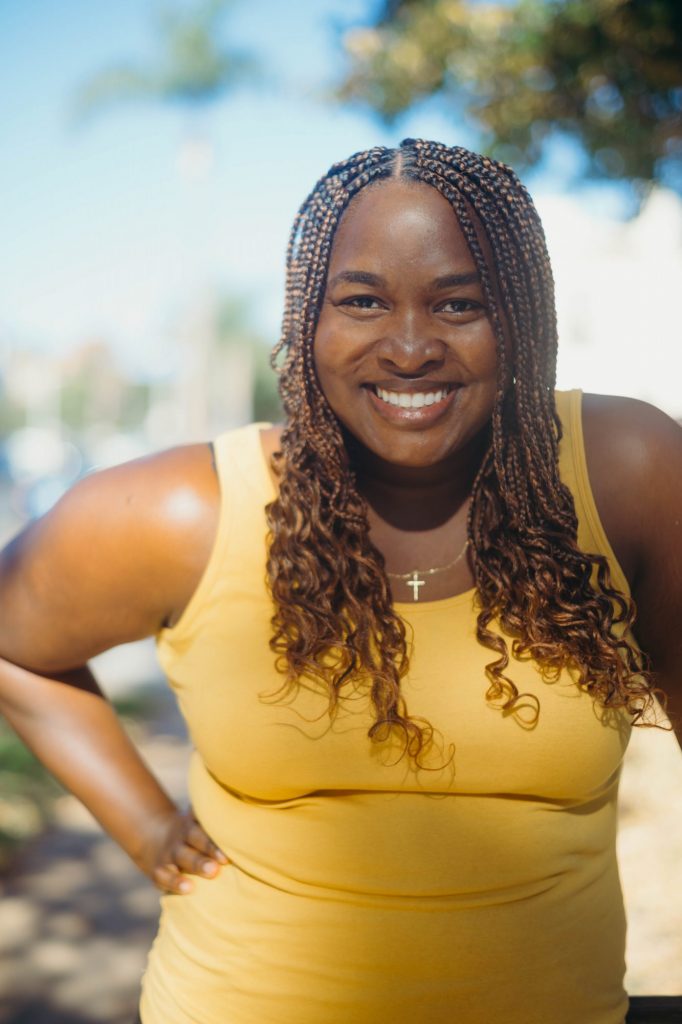
Credit: Oludara A.
“The last year has been a huge challenge, as I work in mental health. My job has increased my anxiety and feelings of depression, forcing me to find ways to tap deeper into the things that help me self-soothe and regulate my emotions.
I practice self-care in many ways — physically, emotionally, and spiritually. I have therapy over the phone every two weeks. I go on long walks, take an online dance class, and do yoga when I remember. I create strict boundaries around my interactions at work; I’ve learned that every phone call does not need to be answered. If it is important, the person will leave a voicemail and I can call them back when I have ample time. I am using up my vacation and sick days at work, and I have already planned out which days I am taking off for the rest of the year. I also started taking up hobbies again — cooking, reading, and writing. I also try to take the weekends off on social media. I found that during the pandemic, I am on my phone so much during the day doomscrolling. Taking the weekends off helps me to reset.”
DuShaun P., 37, Community Organizer, Lawndale, IL
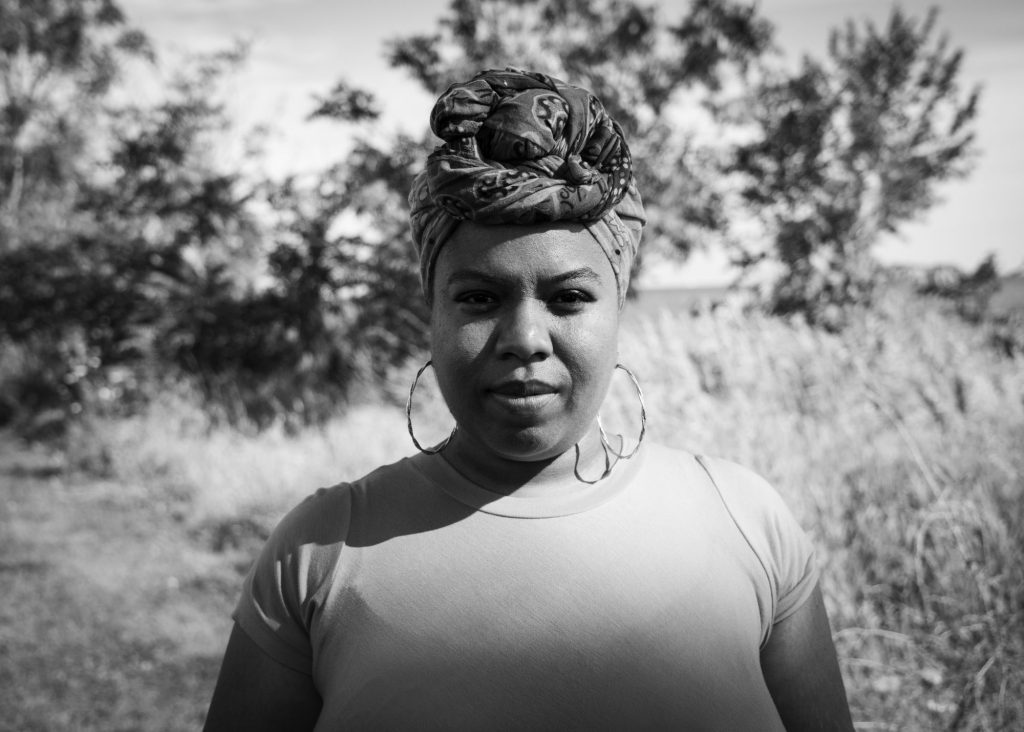
Credit: DuShaun P.
“During the pandemic, my work has shifted to being responsive to the ever-changing needs of the community. We’ve distributed food, diapers, PPE, and more than $35,000 to the community to help with rent and utilities, and now we are launching a food collaborative where we will work to feed families through food delivery. We’ve been pretty overwhelmed.
Outside of organizing, I am a yoga teacher and I have a yoga business called Sage Gawd Collective. I think I have been practicing more of what I call ‘collective care,’ which benefits me as well as the people I work with. Outside of the yoga business, I have been cared for by friends through laughter, getting things picked up for me at the store, and by people advocating for me and reminding me to rest. Now more than ever, I need my collective to remind me to rest, and for my family and friends to make space and allow me to do so. In return, I am trying to do that too for my friends, family, and the greater collective.”
Asante W., 38, Firefighter, Cherry Hill, NJ
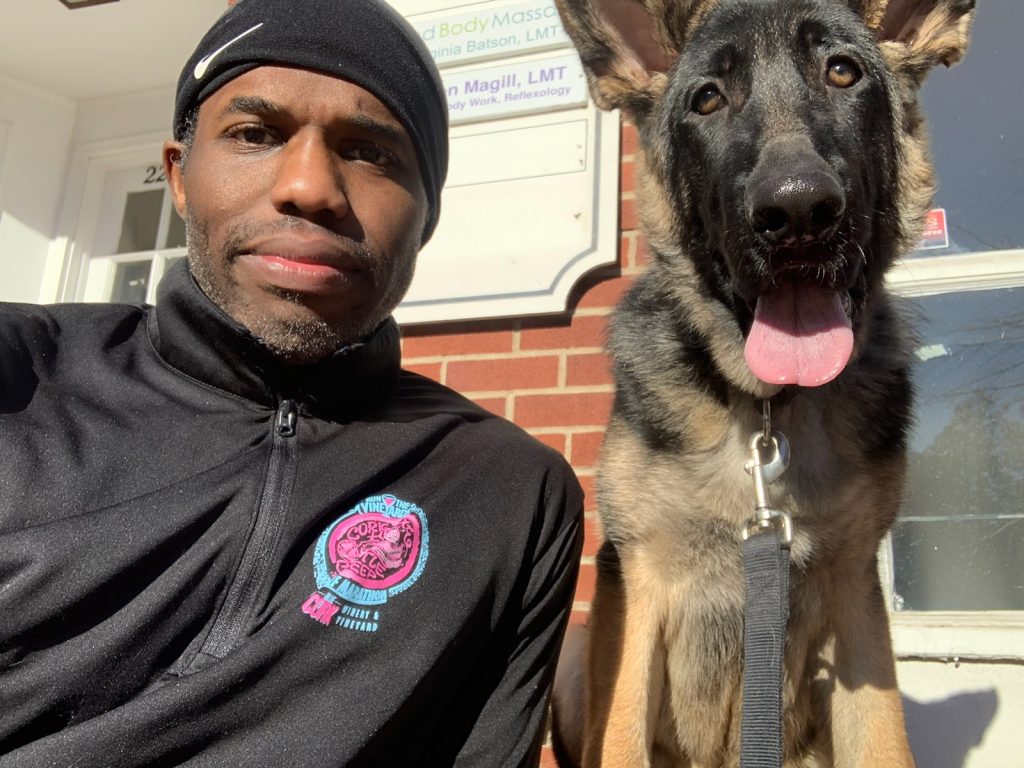
Credit: Asante W.
“The pandemic has not stopped the fires, unfortunately. Work has been just as stressful, but now we’re doing it with masks on. We’re putting in long hours and trying to be safe, though that hasn’t prevented some of us from catching COVID. I’ve been lucky enough to stay safe since the first five months of the pandemic I was injured [and not working]. Since then, my self-care has been running. That’s helped me mentally break through the edge of the pandemic more so than the gym — we have equipment at the station, but I’ve been mostly running outside. I’ve really seen a difference in my mental health since being active again.” (Related: Here’s How Working Out Can Make You More Resilient to Stress)
Edmond M., 29, Warehouse Worker, Dallas, TX
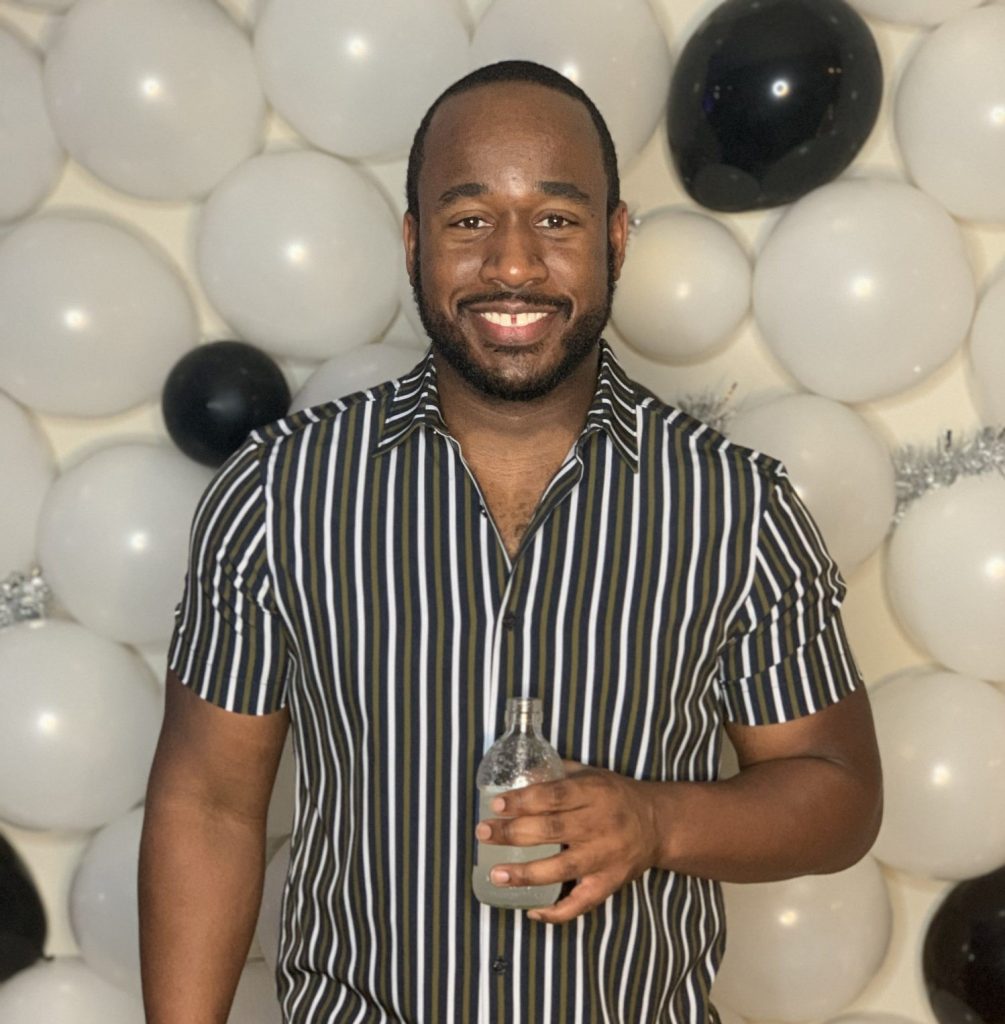
Credit: Edmond M.
“I’ve been practicing self-care by detaching and listening to a lot more music. I listen mostly to R&B and neo-soul, but I recently came across the LoFi genre and I have not regretted it. I set the mood by ignoring all social media, putting my headphones in, and turning the music all the way up. Then I either let the music take me, or go do simple things like ride my bike around the city with no destination, headphones blasting. I find a lot of joy and relaxation in doing those simple things. Staying current with all the events is really exhausting, so detaching and vibing to music really helps take care of my mental health.”
Source: SHAPE

